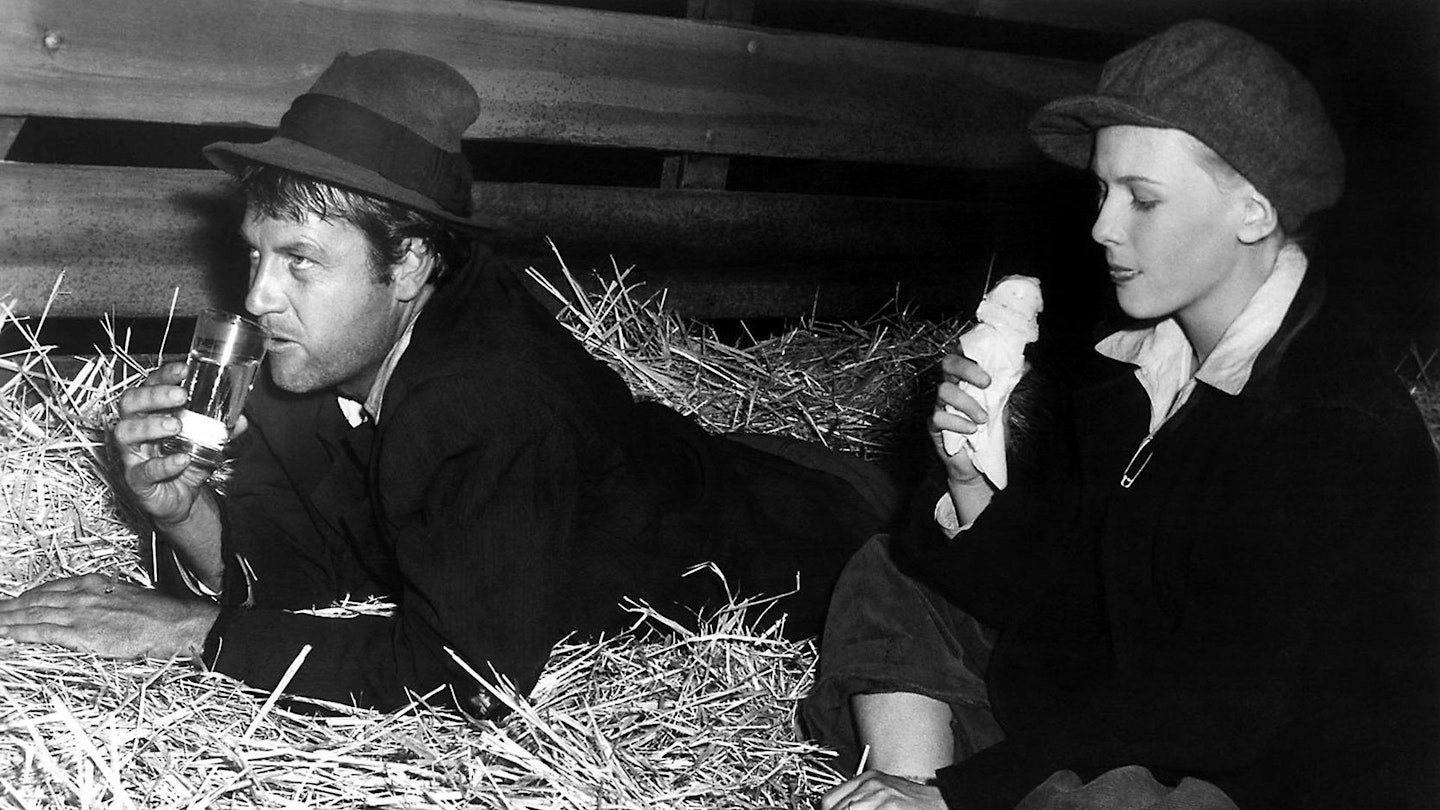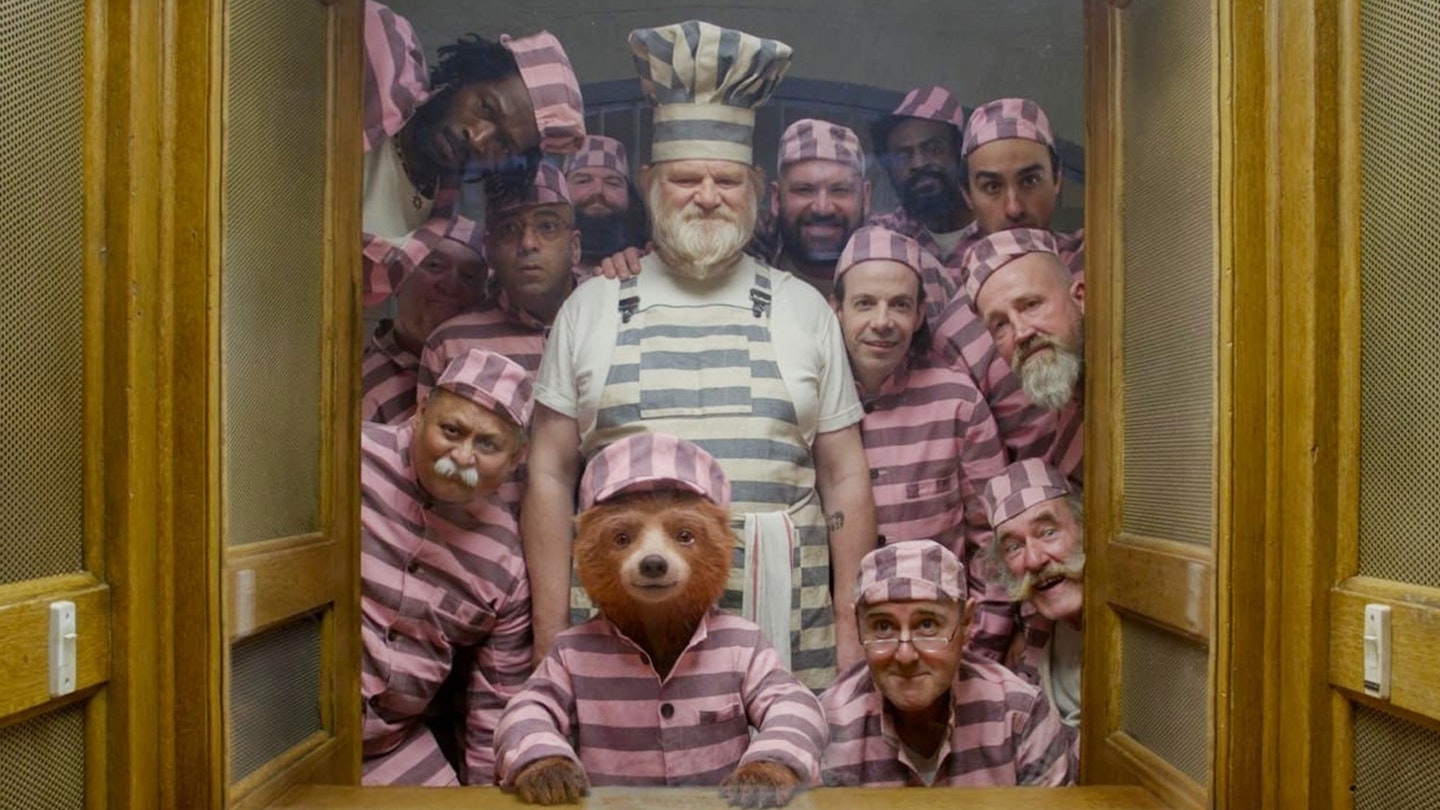Sullivan's Travels is still as brilliant and funny today as it was back in the early '40s, when Sturges was the toast of Tinseltown, praised as its premier satirist and crafter of social comedies.
Even after Sturges' star burned out and long after he was largely forgotten, Sullivan's Travels has endured as a favourite comic masterpiece among filmmakers and buffs. It is, after all, the granddaddy of movies about the film business. It's acknowledged very specifically, for example, by Joel and Ethan Coen, who drew from it in Barton Fink's dilemma of the screenwriter breaking down as he collides with the studio's business-of-show agenda; in the rat-a-tat dialogue and the climactic punch-up of The Hudsucker Proxy; and, of course, in O Brother, Where Art Thou?. The ultimate tribute, the Coens' O Brother takes its title and entire period milieu from the 'important' picture Sturges' protagonist, John Lloyd Sullivan, is determined to adapt from a ficticious novel by "Sinclair Beckstein" (as in Sinclair Lewis and John Steinbeck, and clearly a rural, Depression-era 'epic of misery' akin to The Grapes Of Wrath). Revelling as he did in eccentric and self-deluded characters, Sturges is also a friendly ghost in movies-about-movies like Living In Oblivion, Tom DiCillo's clever comedy about egos clashing on a low-budget film, or David Mamet's State And Main.
Sullivan's Travels opens with a cracking meeting between two studio bosses and director Sullivan. It's a timelessly sharp scene with snappy dialogue exchanges that wouldn't seem out of place in, say, the writers' pitches in Robert Altman's The Player. Sullivan, played by boyish, square-jawed, all-American Joel McCrea, is the studio-styled Caliph Of Comedy whose hit credits include So Long Sarong, Hey Hey In The Hayloft and Ants In Your Pants Of 1939. After screening for the executives an opus that concludes with two men fighting to the death atop a speeding train (symbols, Sully explains, of "Capital" and "Labor"), he hits them with his pitch for O Brother...: "A picture of dignity, a true canvas of the suffering of humanity" With a little sex in it.
The first part of the picture has you breathless with laughter as Sully attempts to escape the studio lackeys and attendants following him in a 'land yacht' and is taken prisoner by an amorous widow. All roads keep leading the hapless director back to Hollywood, until he meets Veronica Lake's savvy, disillusioned girl, a failed starlet ready to quit Hollywood, in an 'owl wagon' (a diner). She knows more about the real world than he and attaches herself to him as minder. Oddly, she's never given a name, but her designation as 'The Girl' stokes one of the many knowing, throwaway gags; a cop who arrests the pair demands, "How does the girl fit in this picture?" To which Sully replies, "There's always a girl in the picture. Haven't you ever been to the movies?"
It's not until the second half that real hardship is encountered in a beautifully judged, muted sequence. Sturges never makes the down-and-outs and the desperate characters Sully finally mixes with the object of his wit. And the somewhat naive hero is shaped with such care, it is never his innocence or kind impulses that provoke laughs, but his delusions and folly. In an ingeniously devised chain of events, he's brought low, lost and amnesiac to a work gang on a Southern prison farm, where he learns at first-hand just how bad trouble can be. The immortal scene is the shackled prisoners' trip to a poor, black church where the minister and congregation kindly welcome the men to share their picture show, and in the dark everyone rocks with laughter at a Disney cartoon. Sullivan experiences his epiphany and effects his escape, humbled and inspired by what he's learned: "I say it with some embarrassment: I want to make a comedy."
Ironically, Sturges' own yearning to make a 'significant' picture later proved part of his professional and financial undoing, and it is the eight sophisticated thigh-slappers he made between 1940 and 1944 that form his huge legacy to filmmakers and audiences. If he'd ever made his own O Brother, Where Art Thou?, it would probably have turned out turgid and forced. Sullivan's Travels is unpretentious but remarkably complex, and all the more startlingly poignant because of Sturges' assured but light hand steering it between moods and genres, always on a steady course to the good punchline.
Few comedies are as smart as this. Anyone with a taste for laughter, even those with the lowest of brows, should forever find the consolation, vindication and affirmation of comedy's merit and potential power in Sullivan's famous last words: "There's a lot to be said for making people laugh. Did you know thatís all some people have? It isn't much, but it's better than nothing in this cockeyed caravan"

